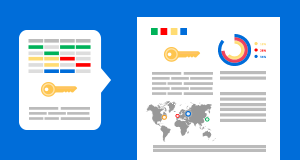Global Marketing News – 9th September 2015
Google to re-enter China after 2010 censorship fight
Google is allegedly planning to re-enter the Chinese market as early as this autumn.
Sources familiar with the plan have said that Google intends to launch a Chinese version of its Google Play app store which complies with the country’s strict censorship laws.
This is an apparent U-turn on Google’s previous stance to censorship in China, which culminated in the search engine leaving the country in 2010, and being banned by the so-called Great Firewall of China, after refusing to censor its search results.
China’s internet censorship laws ban pornographic and other “offensive” content, including “the spreading of rumours”.
Last year, China made it a criminal offence to broadcast any defamatory content online. A perpetrator can face up to 3 years imprisonment if the information has been viewed by 5,000 people or re-posted 500 times.
Change coming in Middle East ecommerce market
2016 will be a year of considerable change for the Middle Eastern ecommerce market, according to research by Frost and Sullivan.
The study predicts that four new technologies will take off next year: ecommerce sites, augmented reality, smart shelves and robotic assistants.
A spokesperson from the Dubai World Trade Centre said that retailers must embrace these new technologies in order to survive in an increasingly digital world, saying: “Regional retailers are increasingly under pressure to captivate customers and drive sales, and Internet of Things-related technology solutions will be integral in converging brick and mortar and online stores.”
The Middle East ecommerce market is worth around 14 billion US dollars currently, with this predicted to rise to 20 billion US dollars by 2020.
The UAE, Saudi Arabia, Kuwait and Egypt are the countries with the largest ecommerce markets.
Mobile ecommerce booming in Indonesia
Research by Google and the Indonesian ecommerce company Elevenia has revealed that mobile ecommerce is booming in Indonesia.
78% of respondents said they had engaged in ecommerce though a mobile phone, with clothing and jewellery being the most popular items that people bought online.
The study’s authors put the boom in mobile ecommerce down to increased smartphone penetration in Indonesia and improved online security meaning that consumers feel safer buying online.
The increase in mobile ecommerce comes despite Indonesia’s economy slowing down generally, with the country’s GDP growth hitting its lowest point in 6 years last quarter.
More Indians using debit and credit cards
The increasing popularity of ecommerce in India has lead to more Indians using debit and credit cards.
The amount of debit and credit cards used in India has increased by 16% and 21% respectively this year compared to last year, with the value of transactions also increasing by a similar proportion.
The increased usage of credit and debit cards seems to be fairly evenly distributed across metropolitan, tier 2 and 3 cities.
Banks are increasingly realising the potential of online credit and debit card usage, with rising ecommerce, internet and smartphone penetration all leading to increased online spending.
Some banks are now offering offers to customers who use their cards to shop online, including Citibank, which recently teamed up with MasterCard to create the e-wallet Citi Master-Pass.
The Indian ecommerce market is currently worth an estimated 25 billion US dollars, but this could hit 250 billion by 2025 as the market grows at a compound annual growth rate of 35%.
Internet capacity growing fast in Africa
And finally, internet capacity is growing faster in Africa than anywhere else in the world.
Research by TeleGeography has revealed that internet capacity has increased by 51% in Africa in the last 4 years, compared to 47% in Oceania, 44% in Latin America and the Middle East, 40% in Asia, and 33% in Europe and North America.
Africa is a key frontier for future internet growth, with the 1 billion threshold for mobile subscription edging ever closer.
As internet capacity increases, more and more Africans will be able to get online and access more complex websites, making it an important region for businesses looking to target international markets.
Webcertain’s global marketing news bulletins are daily 5-minute videos, providing marketers with the latest international digital marketing news in an easy-to-digest format.
Podcast: Play in new window | Download
Cal O'Connell
Latest posts by Cal O'Connell (see all)
- Facebook to decrease visibility of business posts - January 16, 2018
- Naver criticised for manipulating suggested search terms - January 9, 2018
- Google Launches Google Go App For Emerging Markets - December 8, 2017




